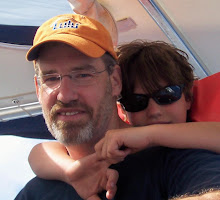Dear Dojo Family,
It's only been a couple of weeks since so many people gave themselves to long, sweaty, dusty hours to make our new dojo a reality. But already, circumstances have moved me to ask you all to mobilize yourselves to an even more profound undertaking.
You certainly don't need to me tell you about the massive humanitarian crisis going on just a few hundred miles off the shore of our country. The Red Cross estimates that as many as 50,000 people were killed by this week's earthquake in Haiti. In a country where daily existence was already a struggle for so many, an unthinkable amount of rebuilding will be needed for them to even return to that status quo.
What many of you do not know is that some very dedicated students of ours, the Groder family, run a mission in Haiti. Kevin Groder is Pastor to, and adminstrator of, Mission of Hope Haiti (missionofhopehaiti.net). In addition to providing thousands of pounds of food to families in need, Mission of Hope also runs schools that educate 1,000 children who otherwise would go without, and was in the process of building an orphanage. That planned orphanage now lies in ruins, along with a number of school buildings. Two teachers died.
Our Tokyo Joe's community can help Mission of Hope rebuild what was lost. So we are organizing a "kickathon" fundraiser that will give 100% of its proceeds directly to that undertaking. As of this writing, Kevin is on 24 hour standby for the next military cargo transport out of Springfield that has room for him. As soon as he is on the ground and able to assess the full scope of what's happened to Mission of Hope, he will give us a concrete project that can benefit from our efforts.
Think of this: if every student in our school can find ten friends, neighbors, relatives, coworkers or classmates to donate just five dollars; $10,000 can go to this rebuilding effort. And while that does not go too far (speaking from recent experience) in construction costs here in the U.S., it can make a mountain of difference in the impoverished nation that is Haiti. And as that money is put to work, you will be able to see it happening thanks to members of our community who will be there.
Here's how a kickathon works:
Starting Monday, every student will be able to pick up a pledge sheet, and begin gathering sponsors. Between February 15 and 19, each student will be given 60 seconds to throw as many kicks as they can. The participants can use any kick, and either or both feet. Feet must touch the ground between each kick, and the instructor who times the participant will have final say as to whether the kick meets the level expected of that student. Sponsors can either give a set amount of money per kick, or pledge an overall amount.
Caroline and I would like to extend our thanks for your participation in this by offering some incentives. Any student who collects $50 dollars receives a free patch. A total of $100 or more gets a special tee-shirt designed for this occasion. The top donations for each student in our Panthers, Dragons, Junior, Teen, Adult and Kickboxing levels gets $100 in "dojo dollars" that can be used for any item or service that we sell.
And the greatest prize: turning the horror and empathy that we feel watching the images that emerge from Haiti into concrete action, and watching as concrete results are achieved. I could not issue this call to action to a greater group of people.
Yours Gratefully,
Sensei K
All of us here at Firebrand have a few traits in common, one of them being that we try to help other people where possible. The devastation in Haiti is unbelievable. The numbers I heard this morning are tragic, estimates of 200,000 dead. About all I’ve been able to do is text “HAITI” to 90999 a few times, but who knows where that money really goes?
What was inspiring about this email for me was 3 things:
1. It’s a very specifically targeted place to help,
2. We can keep the money out of the hands of middlemen, and get it directly to the mission, and
3. With all the dead, there are probably a lot more orphans in need than there were before the quake.
What Firebrand is going to do is this: donate 2.0% of our top line revenues for the next 3 months to the Mission of Hope orphanage in Haiti.
This will be a strong challenge for us, but not nearly as difficult as many people are facing in Haiti. We have faith that our customers will support us during this effort. We also hope that our efforts on behalf of the Mission of Hope will inspire other friends and colleagues to find their own way to help.

